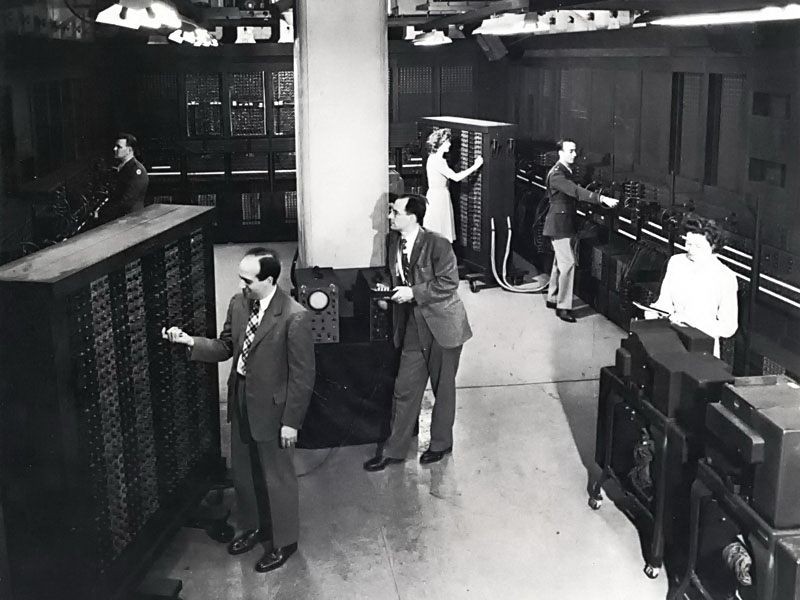Monday, September 30, 2024
Blog Post #11 ~ EOTO Terms & Concepts Reax
EOTO Terms & Concepts Reax
Monday, September 23, 2024
Blog Post #10 ~ EOTO Terms & Concepts (llusory Truth Effect)
Illusory Truth Effect
Wednesday, September 18, 2024
Blog Post #9 ~ Antiwar Conundrums
Antiwar Conundrums
Blog Post #8 ~ Diffusion of Innovations
Diffusion of Innovations
Wednesday, September 11, 2024
Blog Post #7 ~ EOTO Technology Presentations
EOTO Technology Presentations
Technology That I Learned
At the start of class, I learned about Television and who
made the TV's first iteration, Philo T. Farnsworth. It first looked like a
camera tube and then was put into those small boxy tv's. Part of it was made
in 1927, but the first TV was made with the camera tube in 1929.
Lastly, what I would like to mention that I learned was
about emails and something that adds to the whole grand scheme of the internet.
Emails were invented by Ray Tomlinson in 1971 but weren't really used a lot
until the late 1990s. Actually, Bill Clinton was the first one to use emails, and
he really didn't use them that much. I feel like the reason why emails weren't
being used during that era might be because of spam emails. Spam emails weren't
a thing until Bill Clinton was president. Another thing to add might be that
people didn't have great access to or could buy PC or phones that use email.
Friday, September 6, 2024
Blog Post #6 ~ Communication Tech Timeline EOTO ~ History of Personal Computers.
Communication Tech Timeline EOTO
Today, I am going to be talking about the history of personal computers. Now, when we think about
Jumping a little bit forward until around the 1950s, they started to become a little bit smarter and smaller, being calmer and more compact, for example, the ENIAC computing system (1943), and the first computer program to run on a computer around 1948. Most of the computers made during the mid-19s were from universities or university computers. There were also a lot of them being used for military purposes or a special version of that current computer being used for military purposes like radar or translators. All of these computers were being heavily worked on, and just in the span of 10 years, there was a huge accomplishment from IBM (International Business Machines) making the 1401 Mainframe, which replaced all the Vacuum Tube Technology with smaller and more reliable transistors.
These transistors were the first to be used in their series of computers as well, and by the mid-1960s, nearly half of all computers were using IBM 1401.
It doesn't stop there with IBM; they still accomplished a lot, and this leads me to the bigger impacts of computers from the late 19s till modern times.
But before we get to IBM, Apple came along, and with the beloved Steve Jobs, and made the "Apple-I," which is a single-board computer, and then the "Apple-II" was introduced, which was a little bit bigger
However, IBM made a huge impact as well during that time around 1981.IBM introduced its own personal computer, and it was extremely popular during that time frame. It was the world's most popular personal computer in microprocessing using
certain operating systems and adapting from Microsoft. It was hard for other companies to compete with IBM because the only thing they really had to base on was prices, so there were a bunch of clones out there trying to compete with it.
I'm going to summarize quickly from that period (IBM & Apple) to now because there's so much information in history about personal computers. So, pretty much over the years, it became more innovative and more advanced to the point of getting desktops with that boxy-looking screen and base. Computers have gotten better layouts of mice, and keyboards, and of course, computers becoming smarter and faster and have more processing power and visuals. Eventually, getting to laptops, but they looked like toy-looking laptops, very blocky. Those also came a long way to becoming smaller, flatter, lighter, and a lot easier to use.
And that's pretty much the brief history or jest of personal computers.
Sources:
Blog Post #5 ~ Age of AI
Age of AI
Blog Post #4 ~ Privacy, Online & Offline
Privacy, Online & Offline
Privacy for me about these issues is concerning, but this is why I don't really post much on social media. Yeah, it's cool to post something in a while so all your friends or family can see what you're up to, but there's a point where there's too much. I do use it, though, for my hobbies and interests, like YouTube, Discord, and Instagram for friends and others, but for the most part, I just lurk around when it's other social media platforms.
Blog Post #12 ~ Final Blog Post ~ Technology
Final Blog Post ~ Technology Technologies Amazing Advancement Technology as a whole is an amazing advancement in society. It has changed our...

-
EOTO Terms & Concepts Reax A Concept I Found Interesting The first concept that I found interesting during the presentation was influenc...
-
Diffusion of Innovations The Diffusion Of Innovation theory is a theory that explains the rate of new ideas and how technology spreads. Wh...
-
Privacy, Online & Offline The talk of privacy is widespread and frequent, as it should be, because privacy is essential not just for y...



































